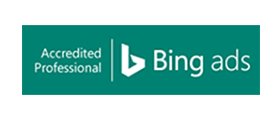It’s always kind of interesting to take on a new client who has been doing SEO for some time yet is not seeing any kind of or the right kind of results from the work. There are many reasons why this may be the case but most often, it boils down to a systemic failure with the approach taken rather than an individual problem with any one element of the work.
Links, Links, Links
The idea for this post has been bouncing around my head for a while, as they do, and I had several possible titles: Backwards SEO, Building Links before Optimising Pages, Reverse SEO or even Why Buying Links is Bullshit and Won’t Work for You.
The last of those probably gives you an idea where I am going with this, and would have been the best title, but, you know, it’s a bit rude, and my mum could read this, so I ditched it for something cleaner.
Still, the point here is this: you can’t just identify several keywords that seem relevant to your business, maybe make some simple changes to your homepage title and then start buying up a bunch of links to your homepage for these keywords, that’s just plain dumb and won’t work.
SEO is a process
You need to think this whole thing through from top to bottom: who are my customers? what do they need? how can we help them? what content can we use to do that? Once you have determined the content you need on your site then you need to at least follow the most basic approach of identifying keywords, mapping keywords to the relevant pages, building more content where needed to support the keywords and optimising those pages for the targeted keywords.
Links & Landing Pages
Then, and only then, should you think about any kind of link building and always consider the intent of user as illustrated by the keyword they are searching for. If I search for ‘donut delivery’, I want to land on a page showing me how to get donuts delivered, not on a homepage for a bakery because if that happens, I will just jump straight back to the results and pick the next result (which likely lands the directly on what they were looking for).
So, from a linking perspective, if you are building anchor text links, then at least have them pointing to the right pages rather than funnelling everything at your homepage.
Building Links or Building Linkable Content
Again, the whole, getting someone to link to you is a damn site easier if you have something worth linking to. Now, believe it or not, your service pages are not highly linkable, but a useful resource that is of interest to your target audience (which in turn links to your service page) is something people will more readily share and link to.
A little planning goes a long way with SEO
If you are a small to medium business, odds are, most of your competition is not doing this right. They are buying links one way or another instead of determining a workable strategy for acquiring links through content development.
If you can be that one player in your niche who invests a relatively small amount of time/effort/resources/money into building a better and more useful site than the competition then you are well on the road to building a formidable advantage in search.
I don’t get it
I know that this idea and approach can seem impenetrable, it is completely different to anything you have done before with your standard marketing, but it does not have to be difficult and there are tools to help with the process. A brainstorming meeting to determine who your potential clients are, what are their needs and what you can do on your site to help them puts you into a decent lead over the competition and if you can then start creating some of this content and getting it out there, well, you are well on your way to real links and real rankings.
Google is asking for content, it needs it and it wants to connect searchers with it. People want content (check out the magazine rack at your local store), give them what they want and play the SEO game but do it with real content on your own site and others and social networking and you will build a solid backbone for your web marketing efforts.
Here are some great examples of content marketing done the right way with SEO in mind and here are some other thoughts on using content to break into difficult areas.
Ask yourself these questions in relation to your business:
- What content is in demand?
- What content will soon be in demand?
- Are there any obvious gaps in the content out there?
- Can we improve on any relevant and well-ranking content?
- How can we provide this content? (articles, videos, podcasts)
- How can we use SEO and social media to promote our content (and subsequently, our business)
SEO is a long term game
SEO is not direct response marketing. You don’t spend X and get Y enquiries. Content marketing is not direct response marketing, you don’t put out 10 articles and get 5 enquiries back. What you do is slowly build your visibility in the search engine results through the content you put out there. That one article comparing product A & product B may not get you any enquiries today, but it could tomorrow, and the next day, and it could be bringing more people to your site to discover your brand and business and increasing the odds of them doing business with you for as long as the content is useful and relevant.
SEO is not easy, it is not a quick win, it is a long, hard slog to get to get to the top but if you are willing to make a moderate investment of your time and efforts and follow a structured SEO process then you WILL get results!
If you have any questions drop a comment below. If you would like to work with an SEO consultant that will help you build a content strategy and a long term, rock solid SEO strategy ensuring your success in search for years to come, then give me a shout.






